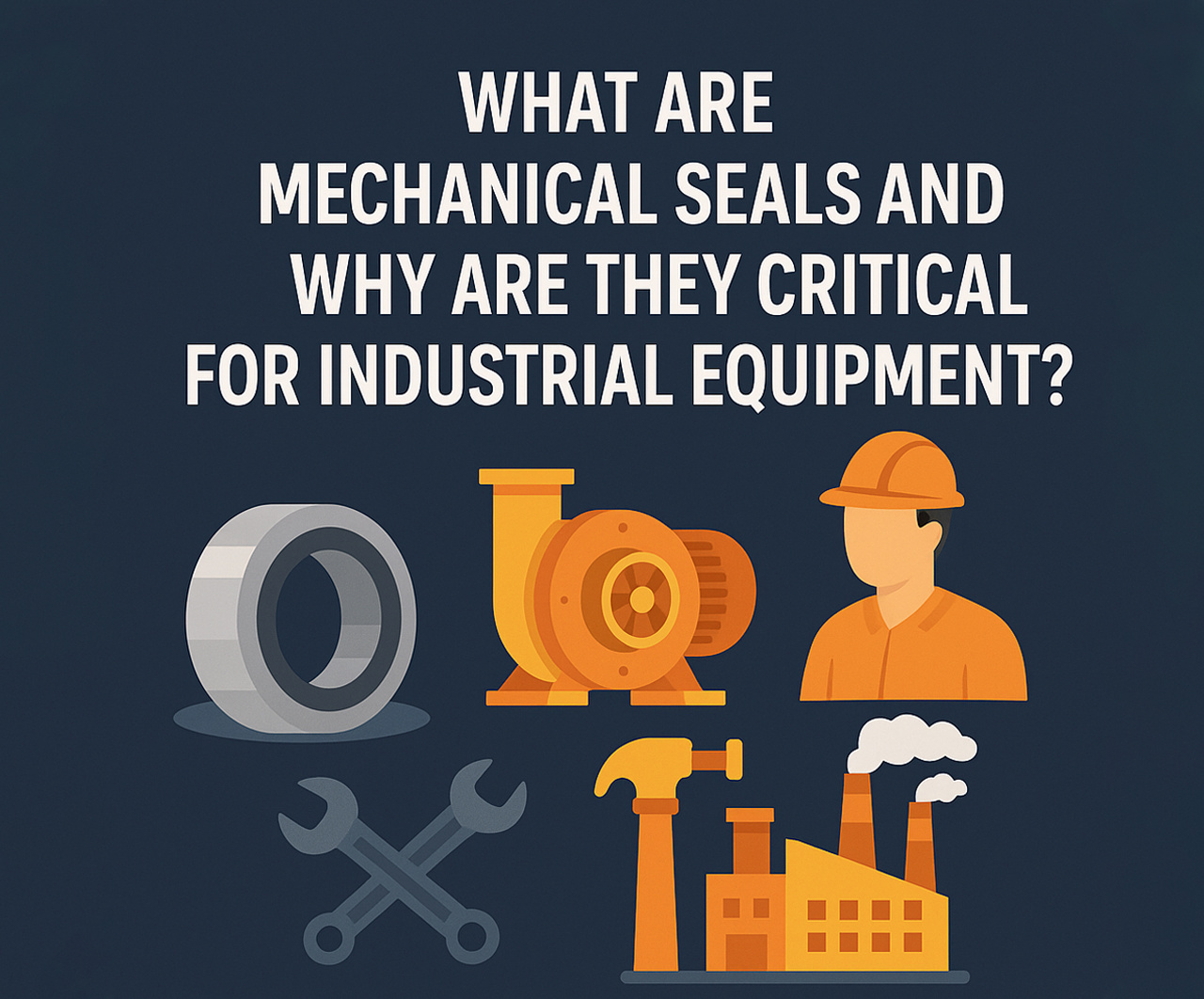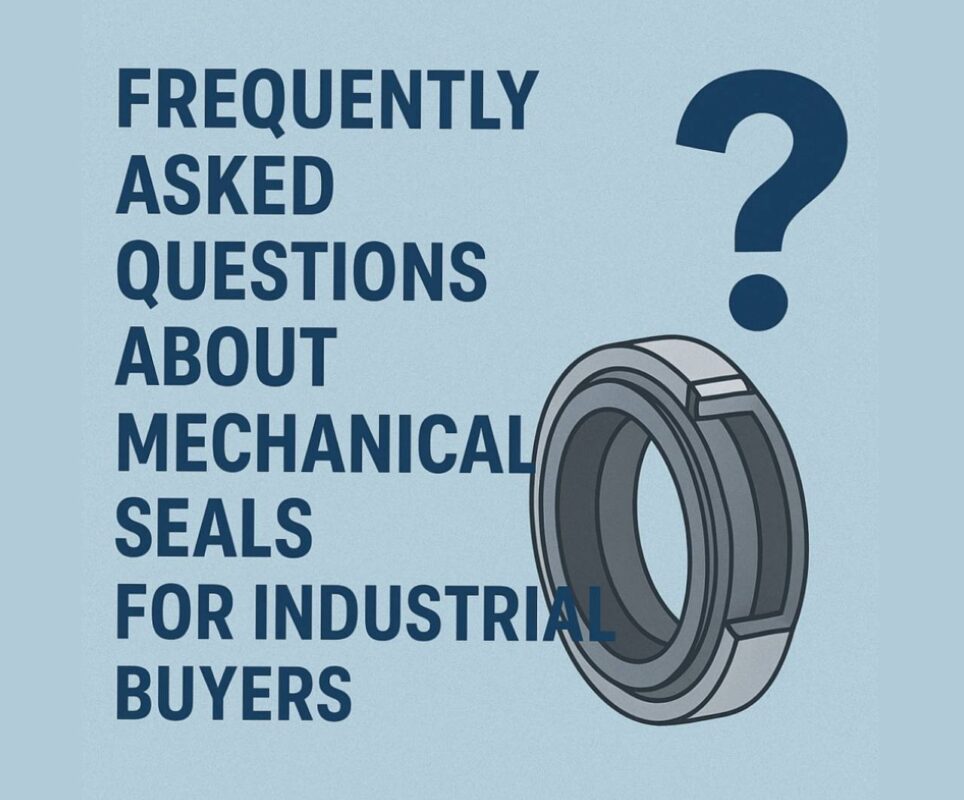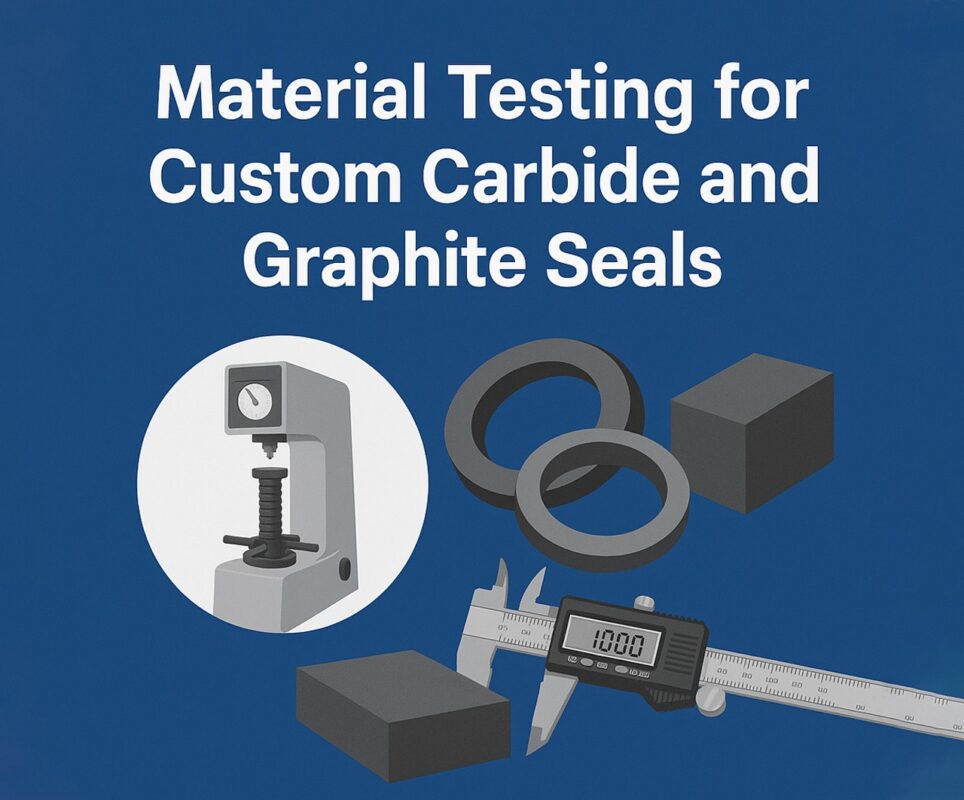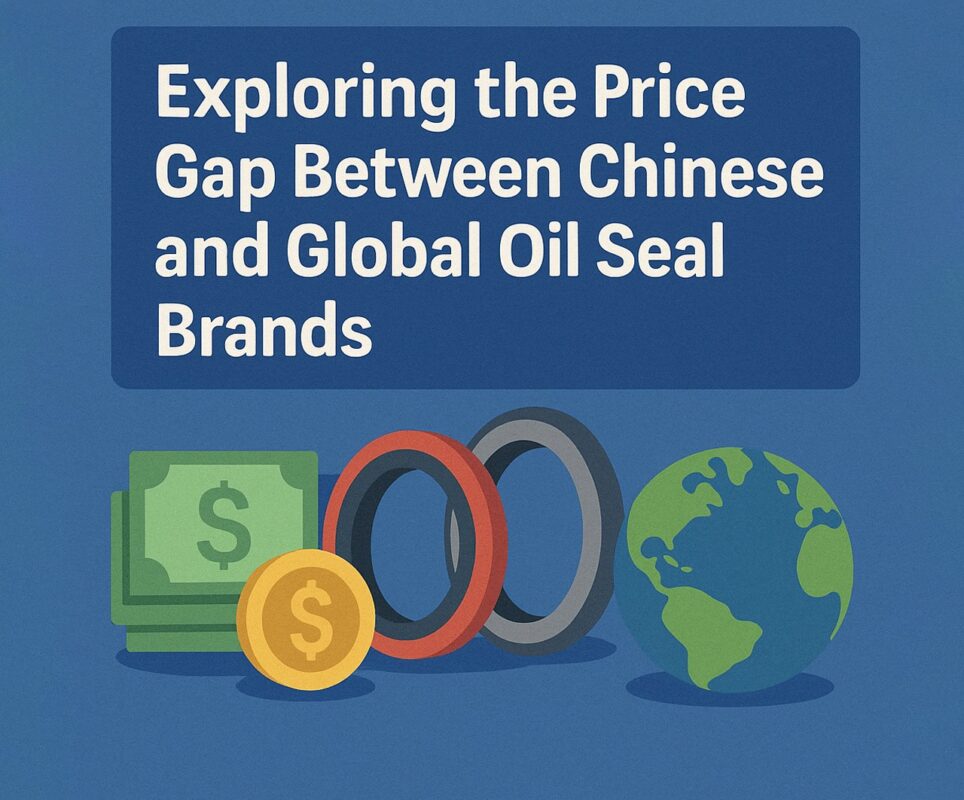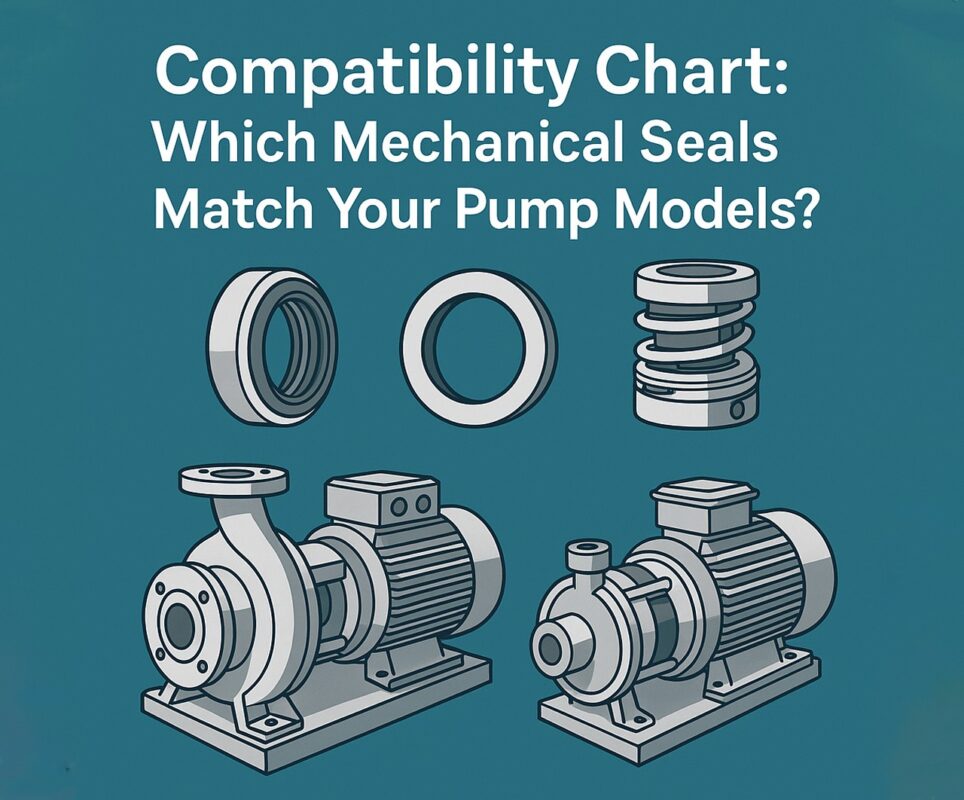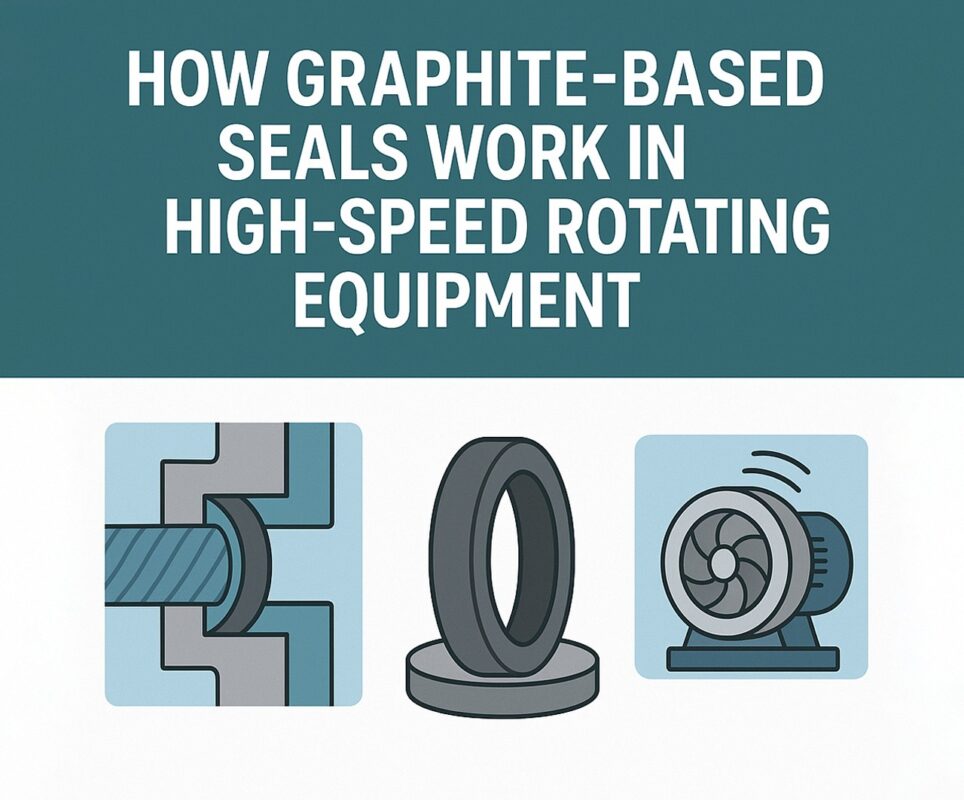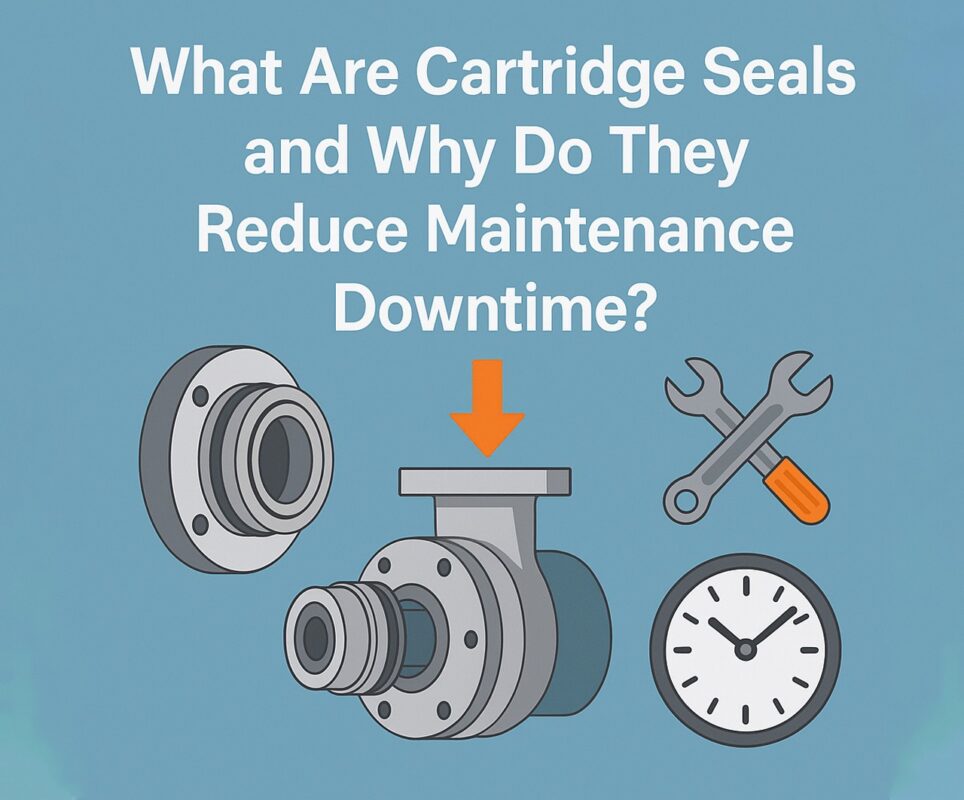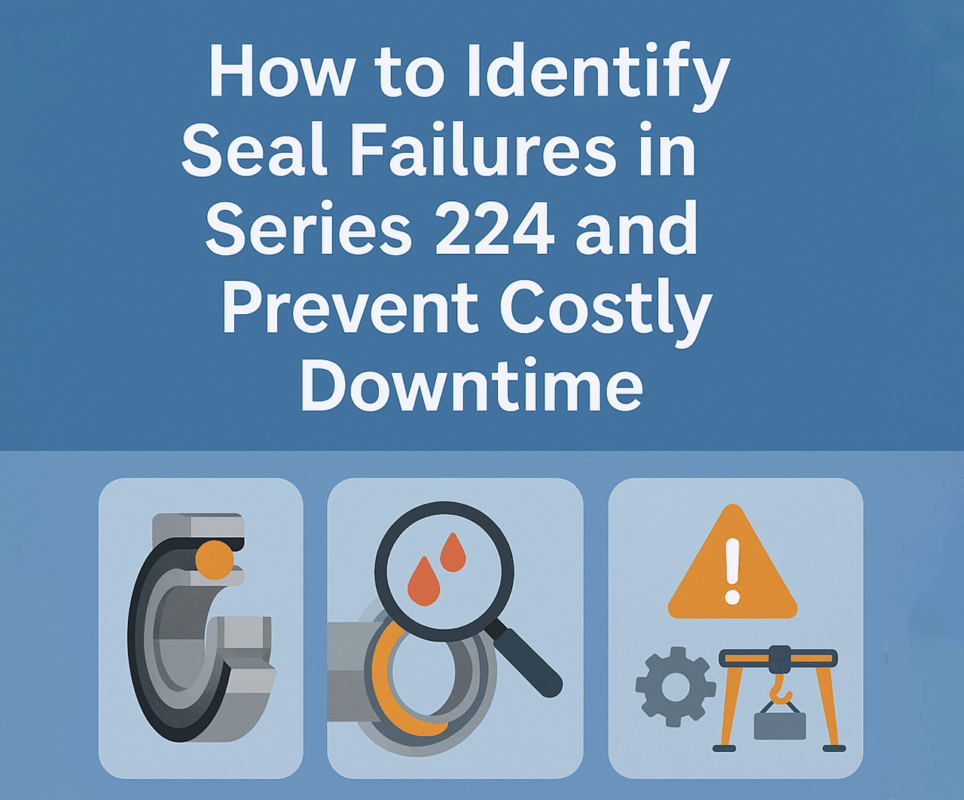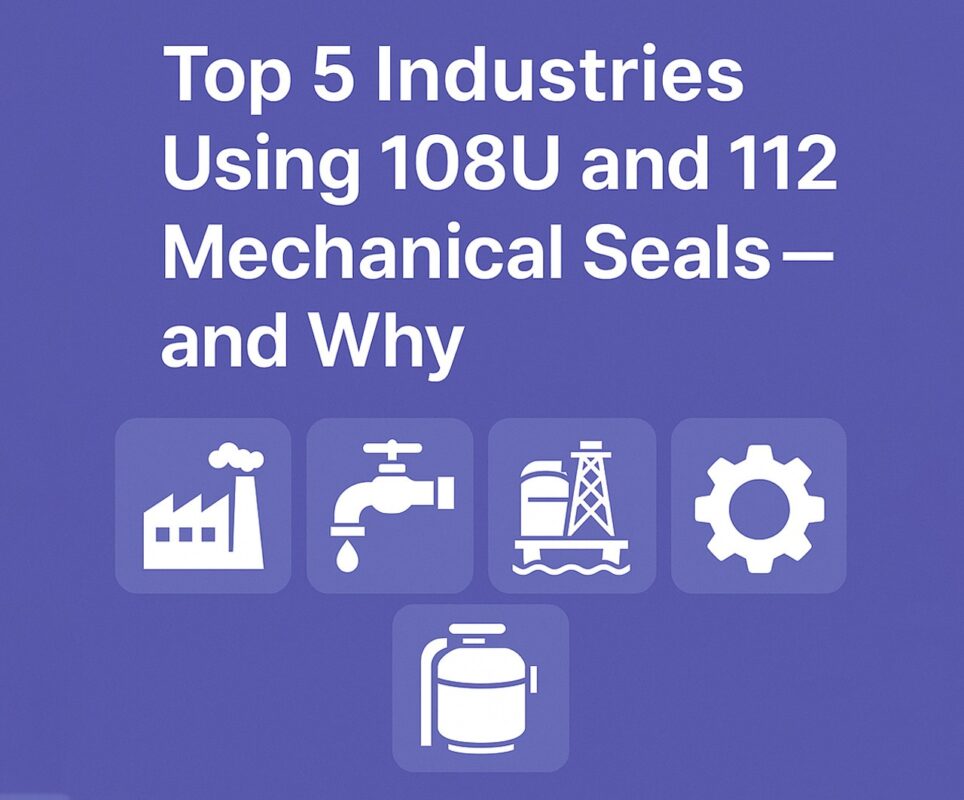In the world of industrial equipment, efficiency, safety, and longevity are non-negotiable. That’s why mechanical seals, the unsung heroes of fluid-handling machinery, are so vital. Whether you’re sourcing components from a trusted mechanical seals supplier or working directly with top-tier mechanical seal manufacturers, understanding how these seals function can help you make smarter, longer-lasting equipment investments.
From petrochemical plants in Nigeria to food processing factories in India and wastewater facilities across South Africa, mechanical seals are integral to ensuring that pumps, compressors, and mixers operate without leaks, loss of pressure, or environmental hazards. But what exactly are mechanical seals, and why should engineers, plant managers, and maintenance professionals care? Know more..
What Are Mechanical Seals?
A mechanical seal is a device used to join systems or mechanisms together by preventing leakage, containing pressure, or excluding contamination. Specifically, they are used to seal the rotating shafts of pumps and mixers—where traditional gaskets or packing would wear out quickly.
At their core, mechanical seals work by using a stationary sealing surface and a rotating sealing surface, often made of materials like carbon, silicon carbide, or tungsten carbide. These faces are precision-lapped and pressed together using spring mechanisms, creating a tight, leak-proof barrier.
Key Components of a Mechanical Seal
- Rotating face: Attached to the shaft and spins with it
- Stationary face: Fixed in place within the pump housing
- Secondary seals: O-rings or gaskets that prevent leakage around the faces
- Spring system: Maintains pressure between faces to ensure tight contact
- Drive mechanism: Transfers torque from the shaft to the rotating face
Why Mechanical Seals Are Critical
Unlike traditional packing or lip seals, mechanical seals offer numerous performance advantages:
- Superior leak prevention: Essential for containing toxic or hazardous fluids
- Longer service life: Reduced wear and friction mean fewer replacements
- Better energy efficiency: Less friction means lower energy usage
- Compliance: Meets environmental and safety standards worldwide
- Low maintenance: Minimizes downtime and labor costs
Choosing the right mechanical seals supplier or partnering with reliable mechanical seal manufacturers can dramatically reduce operational disruptions.
Where Are Mechanical Seals Used?
Mechanical seals are found in a wide range of industries:
- Oil and gas: Sealing high-pressure crude oil pumps
- Pharmaceuticals: Preventing cross-contamination in sterile environments
- Food and beverage: Ensuring hygiene and preventing leakage of consumable fluids
- Water treatment: Used in pumps for filtration and waste processing
- Mining and minerals: Dealing with abrasive slurries and corrosive chemicals
In each of these sectors, mechanical seal manufacturers offer specialized products tailored to temperature, pressure, fluid type, and regulatory requirements.
Types of Mechanical Seals
There are several categories of mechanical seals, each suited to different operational conditions:
1. Cartridge Seals
Pre-assembled and pre-set by mechanical seal manufacturers, these are easy to install and ideal for reducing human error. Best for large-scale, high-pressure applications.
2. Component Seals
These come in separate pieces (rotating and stationary parts). They require expert installation and are favored for custom applications or cost savings.
3. Balanced Seals
Engineered to handle high-pressure applications, they reduce stress on the sealing faces and increase lifespan.
4. Unbalanced Seals
Cheaper and simpler, they’re used in low-pressure environments with less aggressive fluids.
5. Pusher and Non-Pusher Seals
Pusher seals use secondary seals that move axially; non-pusher types use bellows. Each has advantages depending on shaft movement and misalignment.
Material Selection Matters
Not all mechanical seals are created equal. The choice of materials affects performance, durability, and cost. For example:
- Carbon vs. Silicon Carbide: Carbon is cost-effective and self-lubricating, but silicon carbide handles higher temperatures and abrasives.
- Elastomers: EPDM, Viton, or PTFE depending on chemical compatibility.
- Metal components: Stainless steel, Hastelloy, or Inconel, based on corrosion resistance needs.
When choosing from a mechanical seals supplier, make sure they understand the environmental and operational specifics of your application.
Failure Modes and How to Prevent Them
Even the best mechanical seals can fail if improperly installed or misapplied. Common failure causes include:
- Dry running: Operation without lubrication between sealing faces
- Thermal shock: Sudden temperature changes causing seal face cracking
- Chemical attack: Incompatibility between seal materials and the process fluid
- Poor alignment: Excessive shaft movement causes face separation
Prevention starts with proper installation, routine maintenance, and choosing a reputable mechanical seals supplier with technical support capabilities.
How to Choose the Right Mechanical Seal
Here’s what to consider when selecting the right seal:
- Process fluid: Is it clean water or an abrasive slurry?
- Operating temperature and pressure: Match materials to the extremes.
- Shaft size and speed: Critical for proper fit and function.
- Regulatory requirements: Especially in pharmaceuticals or food-grade applications.
- Installation expertise: Go with cartridge seals for ease or component seals for flexibility.
Work closely with your mechanical seals supplier to ensure a custom-fit solution tailored to your needs.
Innovations in Mechanical Seal Technology
Leading mechanical seal manufacturers are pushing the envelope with:
- Dual mechanical seals: For added protection in critical systems
- Gas seals: Using inert gas as a sealing barrier instead of liquid
- Magnetic drive seals: For completely leak-free operation in clean-room settings
- Smart monitoring: Sensors that detect seal wear, pressure, and temperature in real-time
These innovations are especially useful in high-stakes environments like nuclear plants, chemical processing, and offshore drilling rigs.
The Role of the Mechanical Seals Supplier
Choosing the right mechanical seals supplier is as important as the seal itself. Here’s what a reliable supplier should offer:
- Expert guidance: On material selection and seal design
- Custom engineering: Tailored solutions for unique equipment
- Inventory support: Timely delivery and local warehousing
- After-sales service: Troubleshooting, training, and refurbishment options
Local suppliers in regions like Southeast Asia and Africa are becoming increasingly competitive, offering cost-effective and compliant alternatives to international brands.
Mechanical Seal Manufacturers: Who’s Leading the Way?
Top global mechanical seal manufacturers like John Crane, Flowserve, and EagleBurgmann are known for premium engineering and innovation. However, many regional manufacturers now offer excellent alternatives:
- India: Rising as a hub for cost-effective, high-quality seals
- South Africa: Local companies are developing seals suited for mining and municipal water treatment
- Middle East: Customized seals for oil and gas are increasingly sourced from regional producers
Always vet your mechanical seals supplier for ISO certifications, test protocols, and user reviews.
Environmental and Economic Impact
Well-chosen mechanical seals reduce fluid waste, energy usage, and maintenance hours. This lowers the environmental footprint and saves operational costs. Rebuilding seals instead of replacing them also supports circular economy principles.
Some mechanical seal manufacturers offer refurbishment programs that rebuild worn seals at a fraction of the cost of new units—reducing both waste and cost.
Case Study: Seals in a Sugar Processing Plant
A sugar factory in Durban was experiencing frequent pump failures due to leakage. The original seals were not suited to the high-sugar-content slurry. Partnering with a new mechanical seals supplier, they installed a custom dual seal made with silicon carbide and EPDM elastomers.
Results:
- 80% reduction in unplanned downtime
- Annual savings of $30,000 in labor and lost production
- Improved compliance with local environmental regulations
This success highlights the value of working with experienced mechanical seal manufacturers who understand regional operating conditions.
Final Thoughts
Mechanical seals may not be the most glamorous component in your system, but they’re absolutely essential. Whether it’s containing corrosive chemicals or maintaining pressure in a clean water pump, the right seal—backed by a reliable mechanical seals supplier and engineered by trusted mechanical seal manufacturers—can mean the difference between seamless operation and costly downtime.
Invest in knowledge. Invest in quality. And always remember: when your system can’t afford to leak, mechanical seals are your first line of defense.

